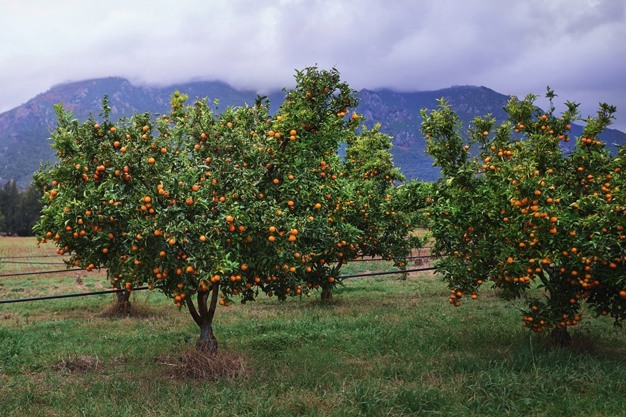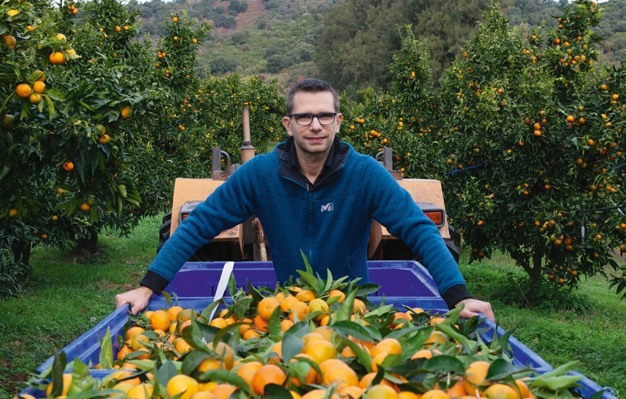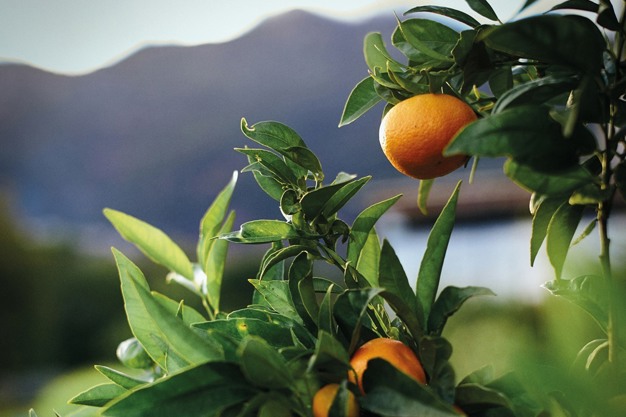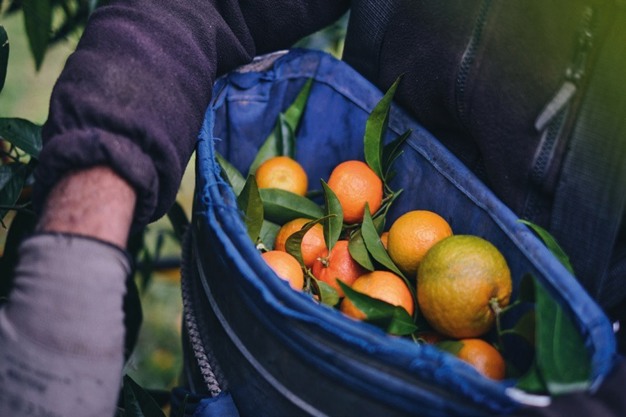The eagerly awaited French clementine kicked off its campaign in mid-October. Jean-Paul Mancel, president of APRODEC (Association for the Promotion and Protection of the Corsican Clementine) outlines the new campaign and discusses the new agricultural landscape that is taking shape.
 The Corsican clementine in figures: 665,000 clementine trees, 30,000 tons marketed under PGI (obtained in 2007), 1,620 hectares under PGI, 190 Corsican producers, 2,000 jobs and 25 packing stations / © Aprodec
The Corsican clementine in figures: 665,000 clementine trees, 30,000 tons marketed under PGI (obtained in 2007), 1,620 hectares under PGI, 190 Corsican producers, 2,000 jobs and 25 packing stations / © Aprodec
Similar volumes as in 2022
"The season started two weeks ago with the Caffin, an early variety, and a few days ago we began the transition to the second variety, the Fine de Corse (the main variety produced in Corsica), which will take us through to the end of December, and perhaps even the beginning of January," explains Jean-Paul Mancel. This year's production will be back to the levels from two years ago, at nearly 33,000 tons, compared with 25,000 tons in 2023. "So far, everything is going perfectly well. The volumes and the maturity analyses are good." These volumes are set to increase steadily every year, as around 50 hectares are planted each year.

Corsican agriculture is changing in the face of water shortage
"Corsica's agricultural landscape is changing," explains Jean-Paul Mancel. "The citrus sector is expanding, with new varieties of mandarins currently being tested, as well as new orange and lemon plantations for which a PGI is currently being studied." However, Corsica is now having to cope with the effects of climate change. For the moment, it has not experienced excessive rain or hail, but rising temperatures and long periods of drought are of growing concern to producers. "Citrus fruits certainly love the heat, but a hotter and drier climate favors the appearance of mealybugs." This is a problem due to the gradual disappearance of phytosanitary solutions. Above all, the orchards, mainly located on the eastern plain of the island, are starting to run out of water. "This used to be the region of the island with the highest rainfall, but that is no longer the case." According to Jean-Paul Mancel, the Corsican Water Board needs to reinvent itself. "Efforts must be made to ensure that all plantations can be irrigated. Citrus growers, for their part, must continue to control irrigation. There is real work to be done with the public authorities to ensure water supply, which will become our biggest problem over time." Another avenue is varietal renewal. "INRAE and CIRAD are currently working on new rootstocks and varieties that are more resistant to heat and diseases, and also require less water."

What about clementine exports?
While almost all Corsican clementines are currently sold on the mainland, APRODEC could look into exports in the near future, given the increase in tonnage. "Until now, we have not needed to export, as the volumes have been sufficient to supply our French clients, but we may have to look for other markets soon."

For more information:
APRODEC
[email protected]
clementinedecorse.fr










